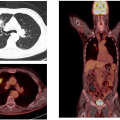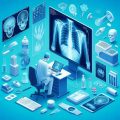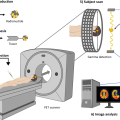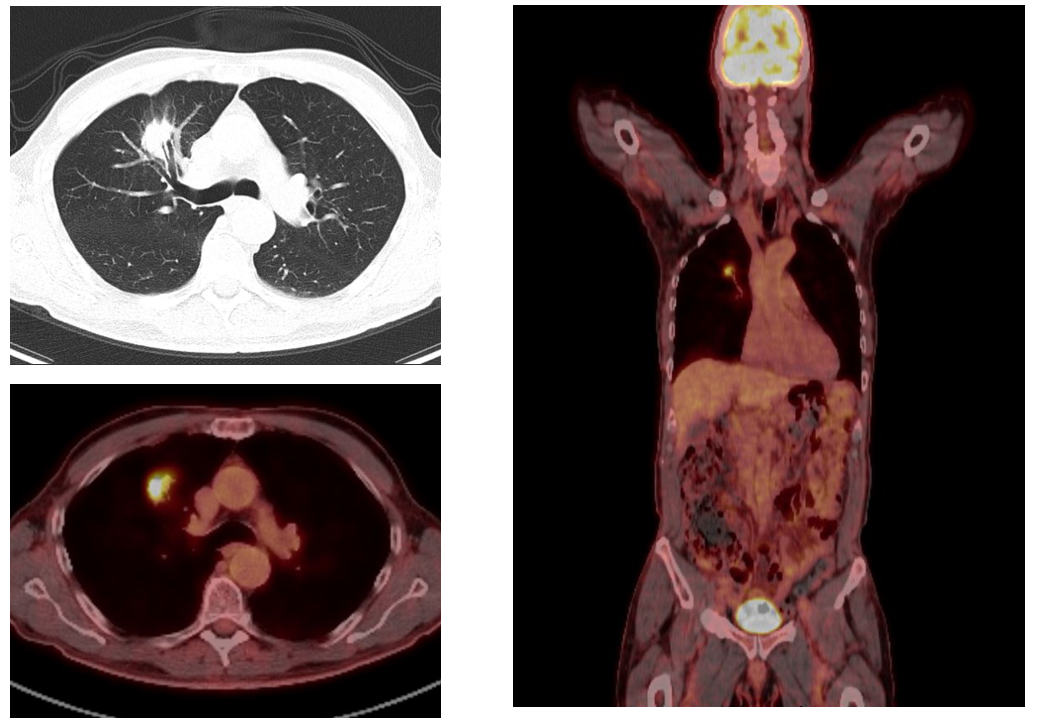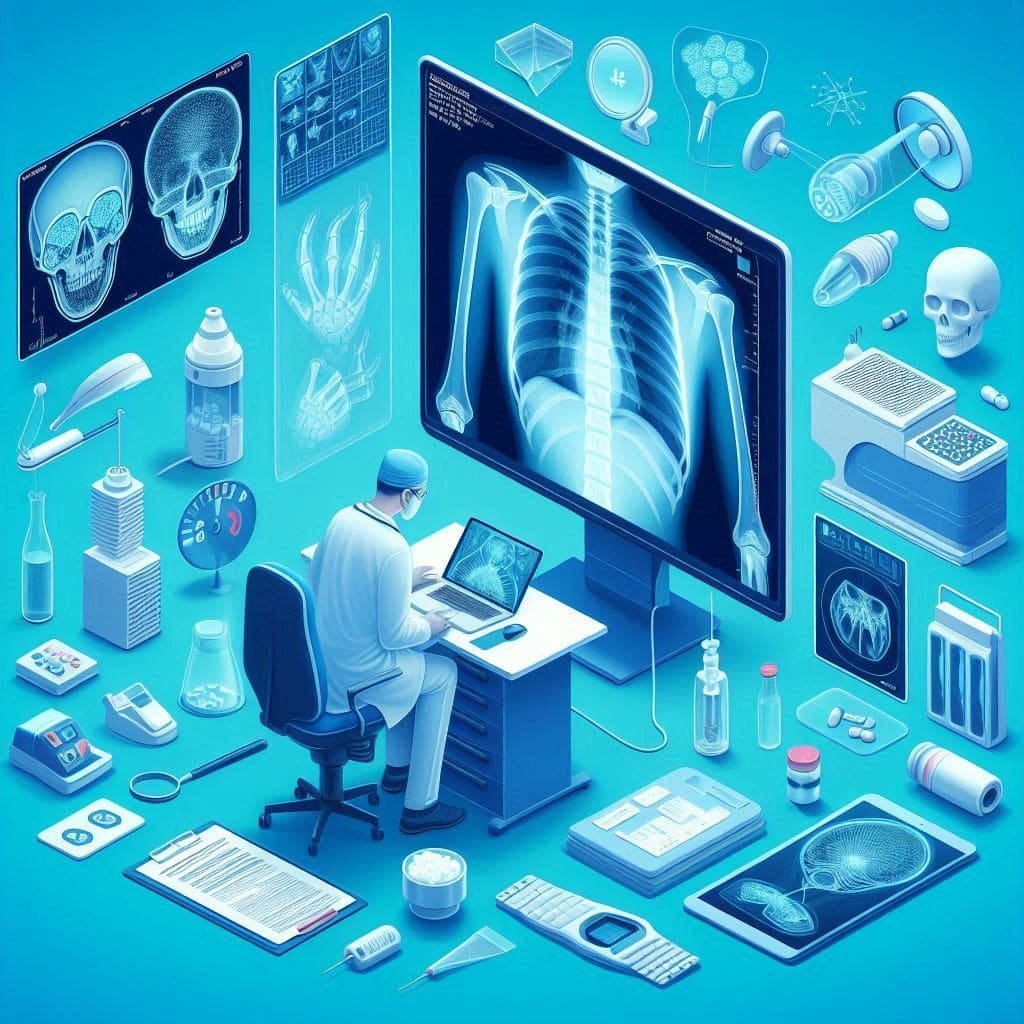
X-rays: safety, risks, and how to deal?
X-rays are one of the prominent diagnostic tools in modern medicine, playing a crucial role in improving doctors’ understanding of patients’ conditions by providing clear and accurate images of bones and internal tissues. However, the use of X-rays is not without potential risks, especially for sensitive groups such as pregnant women and children. In this article, we will explore in detail the safety of X-rays, focusing on their potential risks and how to manage them, and we will highlight how these risks are managed at Dokki Scan or Dokki Scan through their website dokki-scan.com.
Are X-rays Safe?
Understanding X-rays
X-rays are a type of electromagnetic radiation with the ability to penetrate tissues and organs in the body. As X-rays pass through the body, they are absorbed at different rates by different tissues, allowing for detailed images of bones and soft tissues to be created. This type of imaging is a powerful tool for early detection of diseases and body injuries.
Technological Advancements in X-ray Safety
X-ray technology has greatly improved over the years, contributing to increased accuracy and safety. Among the advancements that have helped enhance the safety of X-rays are:
Digital Devices: Digital X-ray machines provide higher image quality and reduce the need for prolonged exposure to radiation. This technology helps reduce the doses of radiation used, contributing to patient protection.
Modern Imaging Techniques: Such as high contrast techniques and low radiation exposure techniques, help provide clearer images with the minimum possible amount of radiation.
Protective Systems: Advanced protective systems, such as shielding, protect patients from unnecessary radiation exposure.
Safety Standards at Dokki Scan
At Dokki Scan, we are committed to applying the highest safety standards to ensure our patients’ health and safety. We use the latest devices and techniques to minimize radiation exposure and ensure accurate imaging without compromising patient safety. Our safety procedures include:
Precise Assessment of Exam Needs: We work to determine the need for examinations accurately to ensure that X-rays are used only when necessary.
Dose Reduction Techniques: We use advanced techniques to reduce radiation doses to the lowest possible level without affecting image quality.
Medical Staff Training: Our medical team receives continuous training to ensure adherence to the latest safety protocols and to provide high-quality medical care.
Effects of Radiation on Pregnant Women
Exposure of pregnant women to X-rays is a significant concern due to the potential risks to the fetus. Risks include:
Effects on Fetal Development: Radiation can affect the growth and development of the fetus, potentially leading to congenital abnormalities or later health problems.
Long-term Effects: Exposure to radiation during pregnancy may lead to long-term health issues for the child, including increased risk of certain diseases.
Safety Guidelines for Pregnant Women
To minimize risks to pregnant women, a set of preventive measures is followed, including:
Using Alternative Techniques: When possible, we prefer to use alternative imaging techniques such as ultrasound or magnetic resonance imaging, which do not involve radiation.
Assessing the Need for the Exam: We work to evaluate the need for X-ray examinations accurately to ensure they are necessary and cannot be replaced with less risky techniques.
Preventive Measures: In cases where X-rays are required, we take all necessary measures to minimize radiation exposure, such as using protective shields and carefully determining doses.
Risks of Radiation to the Fetus
The risks to the fetus depend on the amount of radiation and the type of exam. Exposure of the fetus to high amounts of radiation can lead to:
Congenital Abnormalities: Radiation may affect the development of tissues and organs in the fetus, increasing the likelihood of congenital abnormalities.
Long-term Health Issues: Exposure to radiation may affect the child’s health after birth, requiring careful monitoring of their health.
Effects of Radiation on Children
Impact of Radiation on Children’s Growth
Children are more susceptible to radiation damage compared to adults due to:
Rapid Growth: Children grow rapidly, making them more sensitive to radiation-induced damage.
Tissue Sensitivity: Tissues in children are more sensitive to radiation, which can lead to long-term health issues.
Risks of Radiation to Children
Potential risks to children include:
Disease Incidence: Radiation exposure may increase the likelihood of developing diseases such as cancer and chronic illnesses.
Effects on the Immune System: X-rays may affect the immune system of children, increasing their susceptibility to diseases.
Safety Guidelines for Children
At Dokki Scan, we follow strict procedures to ensure the safety of children during X-ray examinations, including:
Accurate Need Assessment: We work to determine the need for X-ray examinations in children with utmost care, using imaging only when absolutely necessary.
Using Alternatives: We prefer to use alternative imaging techniques such as ultrasound or magnetic resonance imaging when possible.
Protecting Children: We use protective shields and reduce radiation doses to the lowest possible level to ensure the safety of children.
Services at Dokki Scan
At Dokki Scan, we are committed to providing high-quality medical services with a focus on patient safety. Our services include:
Modern Technologies
We use the latest digital X-ray devices that provide clear and accurate images with reduced radiation exposure. Our technologies include:
Advanced Digital Devices: That offer high image quality and reduced radiation exposure.
Advanced Imaging Techniques: Such as high contrast techniques and soft tissue imaging.
Personalized Care
We strive to provide a comfortable and safe medical experience for patients, which includes:
Explaining Exam Procedures: We explain the details of the exam and the procedures involved to ensure patient comfort.
Personal Support: We offer personalized support for each patient, ensuring that each imaging process is conducted with the highest levels of comfort and safety.
Medical Consultations
We provide medical consultations to help you understand examination results and plan the next steps in treatment, including:
Medical Advice: Based on examination results, we provide support and advice to determine the next steps in treatment.
Health Decision Assistance: We help patients make informed health decisions based on examination results.
Conclusions and Recommendations
Balancing Benefits and Risks
X-rays remain a vital tool in medical diagnosis, but it is essential to balance their benefits with potential risks. When used appropriately, X-rays can be a safe and effective tool that helps improve healthcare.
Importance of Adhering to Safety Guidelines
Adhering to safety guidelines is crucial to ensure X-rays are used safely. By applying the latest technologies and using advanced equipment, risks can be minimized, and effective, safe medical care can be provided.
Improving Safety Measures
Safety can be enhanced by adopting advanced techniques, reducing patient radiation exposure, and developing suitable medical policies. Increasing awareness of risks and precautions is essential to ensure patient safety.
At Dokki Scan, we are committed to providing the highest levels of quality and safety in X-ray services. Through our website dokki-scan.com, we offer the latest technologies in medical imaging, focusing on providing the necessary care to ensure our patients’ health and safety. If you need an X-ray examination or wish to consult a medical professional, please feel free to contact us to schedule an appointment or for more information about our services. Your health and safety are our top priority, and we are here to support you and provide the best possible medical care.
Latest Blogs
- All Posts
- Blog

